Portraits of Patagonia: an adventure on horseback in Western Argentina
Photographer and safari guide, Jeremy Goss, traverses glacial valleys, rivers and steep ridges on horseback high up in Argentina’s Neuquén Province, before swapping four legs for two and exploring Chile’s stunning Torres del Paine National Park

I was reasonably sure that I knew how to steer a horse. Or did I? Roberto took another step forward, his hooves dislodging pebbles that leapt into the abyss ahead. The edge was now inches away, I did not want to accidentally hit the accelerator. I froze. He froze. We both stared. Out over nothing, a giant space, a river below, a glacial valley stretching in both directions. I breathed deeply, trying in equal measure to calm my panic, and absorb the immensity of it all. Unimpressed, Roberto farted, and reversed into the horse behind him.

We were somewhere in South America, and to be perfectly honest there were more edges than I had expected. I have a love/hate relationship with the things. I love the vistas that inevitably lie beyond, but there’s something about a steep drop that sets me a-fluster. However, we had come to the Andes and I couldn’t rightly admit my surprise. So I put on what I thought was a brave face and spurred Roberto on. With every minute in the saddle I felt my confidence swelling. Roberto had this covered… my inadequacies would not determine our fate.
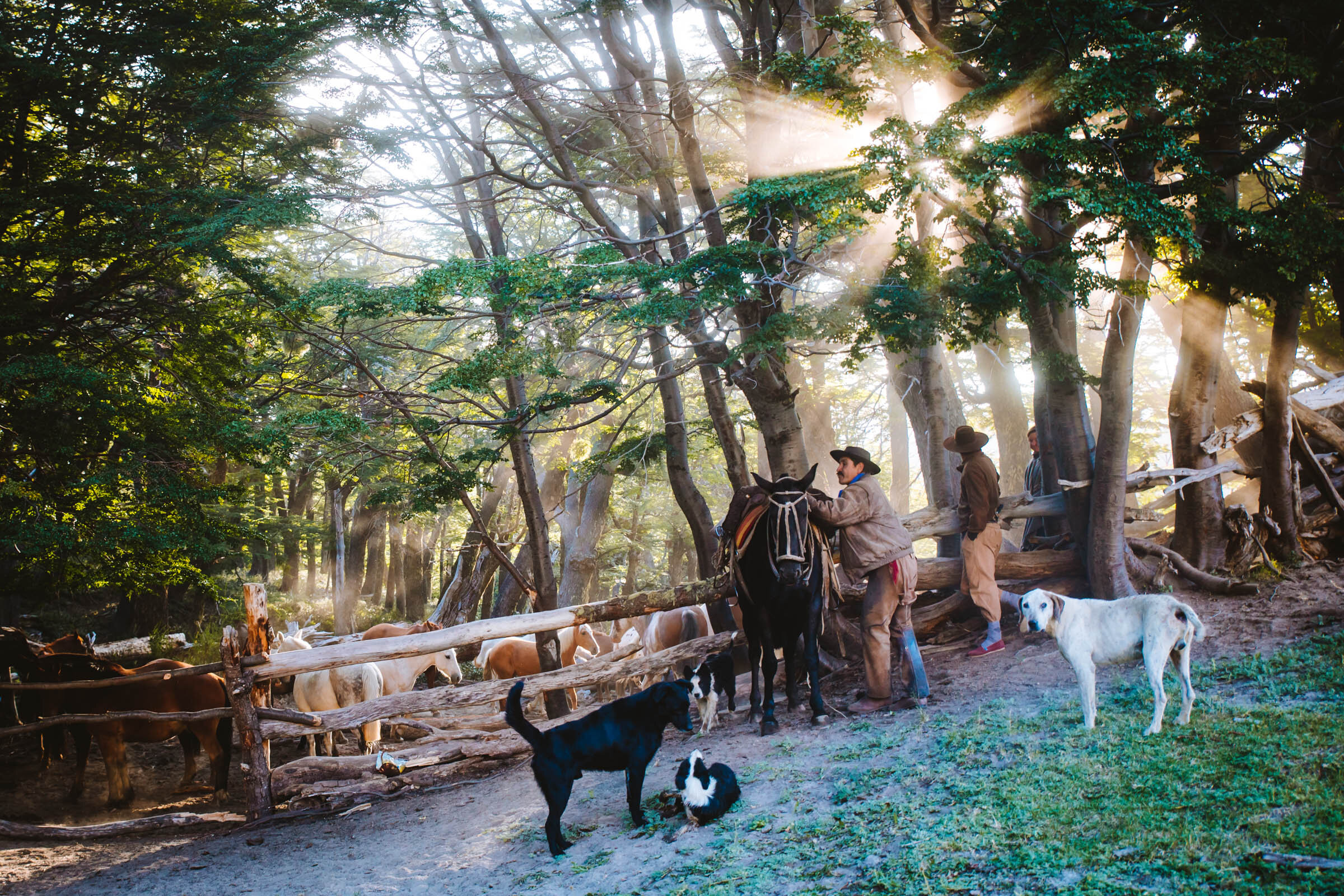
It turns out Roberto was not alone in his abilities, and is part of a brilliant team – both human and animal – under the banner of Jakotango. The founder, Jakob von Plessen, spent years running horse safaris in Africa and has exported the concept to great effect. Key contributors are the gauchos, or Argentinian cowboys, who were men of few smiles and fewer words, but bore exceptional facial hair and a generally heroic demeanor. They looked mostly concerned whenever I was atop Roberto, as if they didn’t expect me to stay there for long, but were infinitely patient and hospitable.

This safari is spread over seven days in a remote area of Western Argentina. The daily rides are generally unhurried and can be accomplished with basic skill levels, as the terrain precludes most sorts of equestrian acrobatics. Out here the horse is truly a tool to carry you through one of the most captivating environments I have ever been in. There are rivers to ford, peaks to summit, mountain-top deserts to cross, and forests of giant trees that shatter the dusty light into a thousand shards.
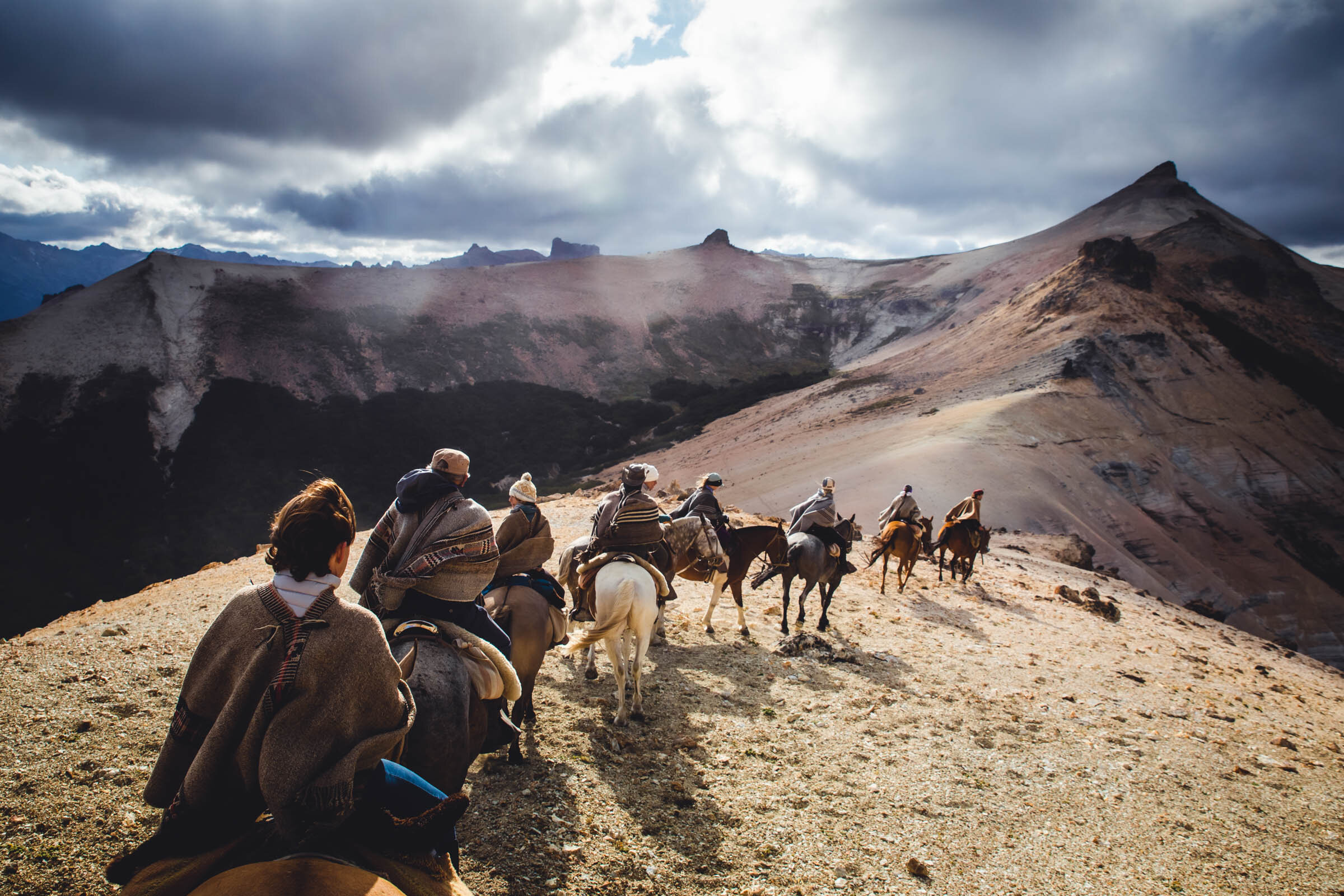
I had heard of the ‘Pass of Tears’, but what of it? It couldn’t be that bad, I thought, in my state of blissful ignorance as our horses carried us up through gnarled old forests. Eventually we emerged above the treeline and onto windswept views of the valleys far below. Before long an edge appeared, then another. Soon they were coming thick and fast and I had nowhere left to look. The advice given was simple - leave it to the horse. So I let my reins go slack and for two hours did just that, trying to keep my eyes open enough to appreciate the volcanic landscape glowing every shade of yellow, orange and pink.
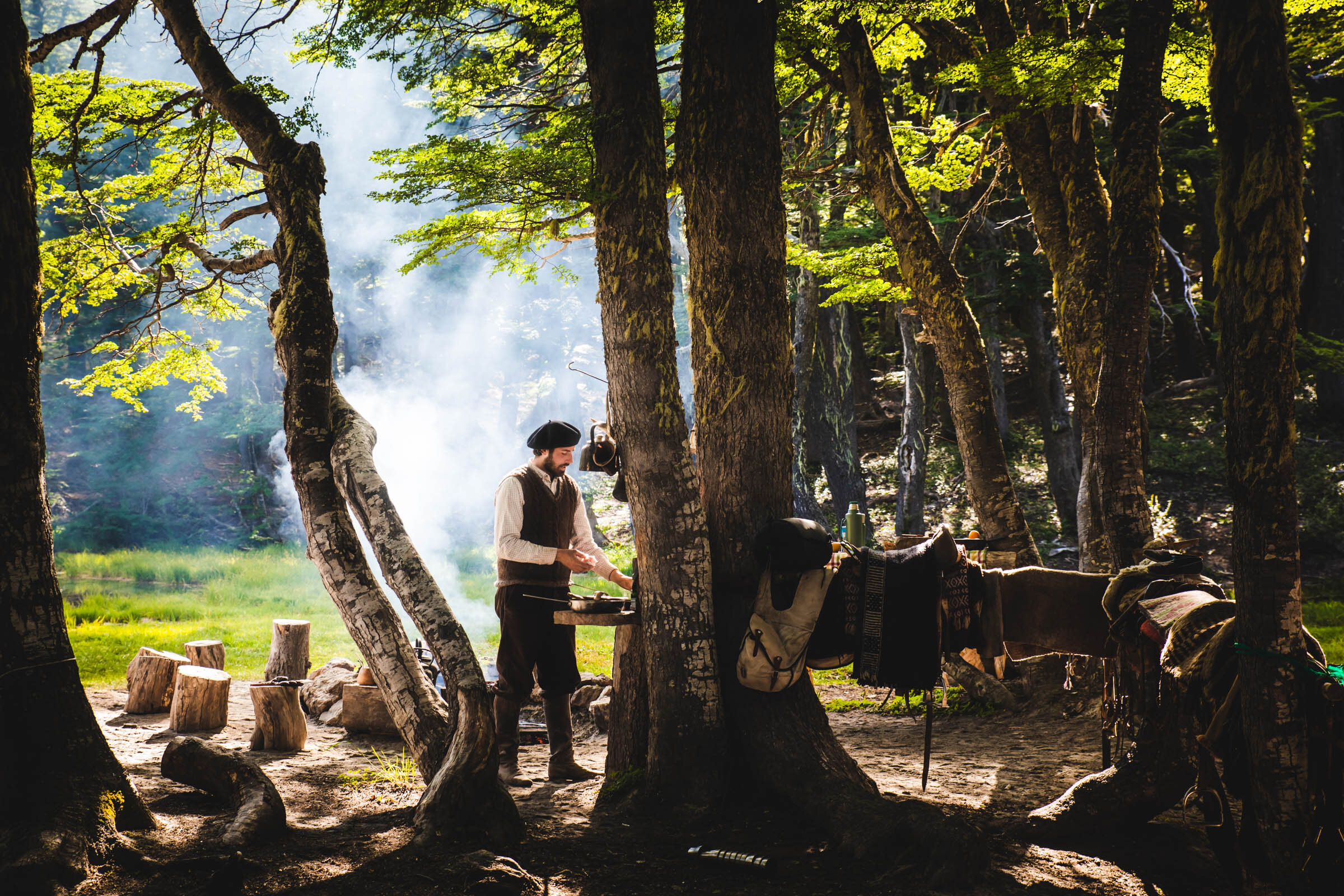
The trip delivers the thrill of remote adventure, without the packing list associated. The main lodge is a cozy combination of wood cabin and tented safari camp on a river at the base of a broad valley, and is a dreamy spot to rest one’s battered buttocks after a day in the saddle. Other nights are spent at fly camps in the mountain wilderness, in places that strain the thread connecting you to a life elsewhere. Nothing matters but what is front of you, which quite frequently turns out to be a cup of Argentina’s finest Malbec.
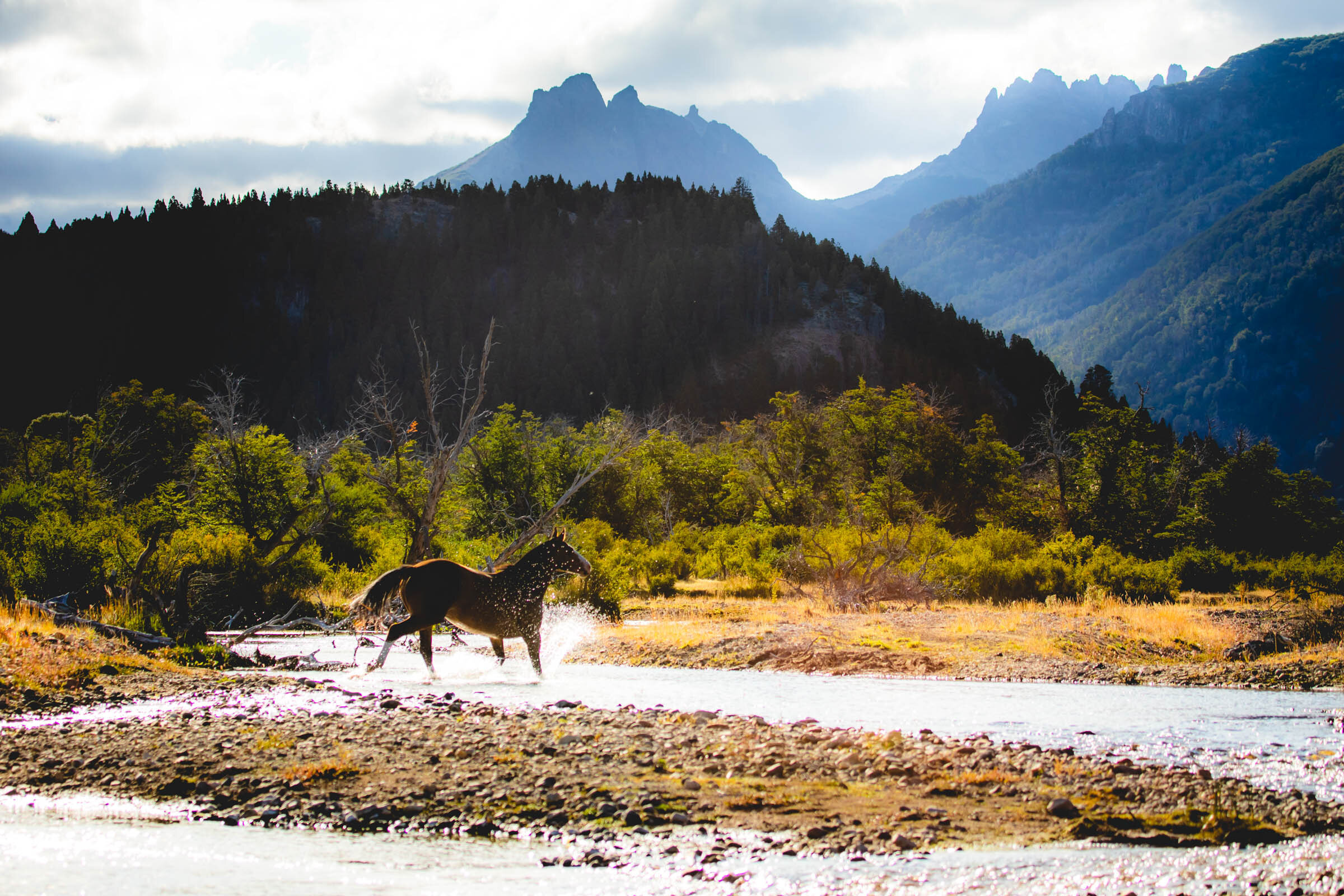
This was an experience that was in every way extraordinary; curated exposure to an extremely wild place, by those who know it best. Days unhindered by screens or beeps, passing by to the satisfying clip-clop metronome of hoof on ground. There was always enough dirt under the fingertips to know that you had done something meaningful, but always somewhere to wash it out. The end meant that our horse days were over, and it was time to swap four legs for two.
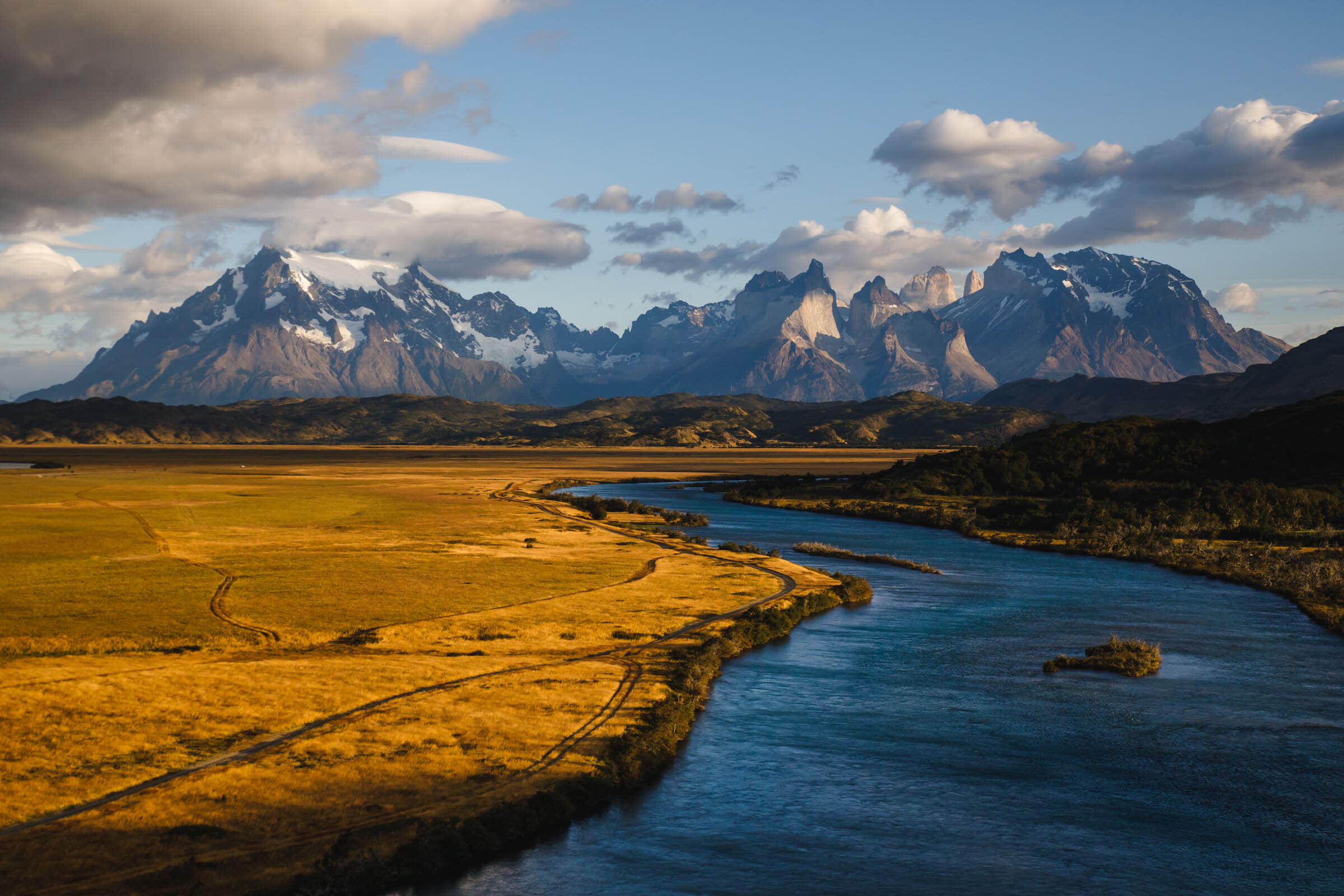
We flew south, following the jagged peaks of the Andes. Our destination was the fairytale landscape of the Torres del Paine (‘Towers of Blue’) National Park. In what seemed a highly inappropriate move, particularly following our daring conquests on horseback, we rolled up in a Toyota Corolla. Despite the staggering wild beauty of the area, including mountains, glaciers, rivers and lakes every shade of turquoise, the park has well-maintained roads and facilities, as well as some of the most popular multi-day hiking trails in South America. The result is an unusual combination of people from opposite ends of the adventure spectrum, locking Gore-Tex and Gucci in competition for most popular brand.
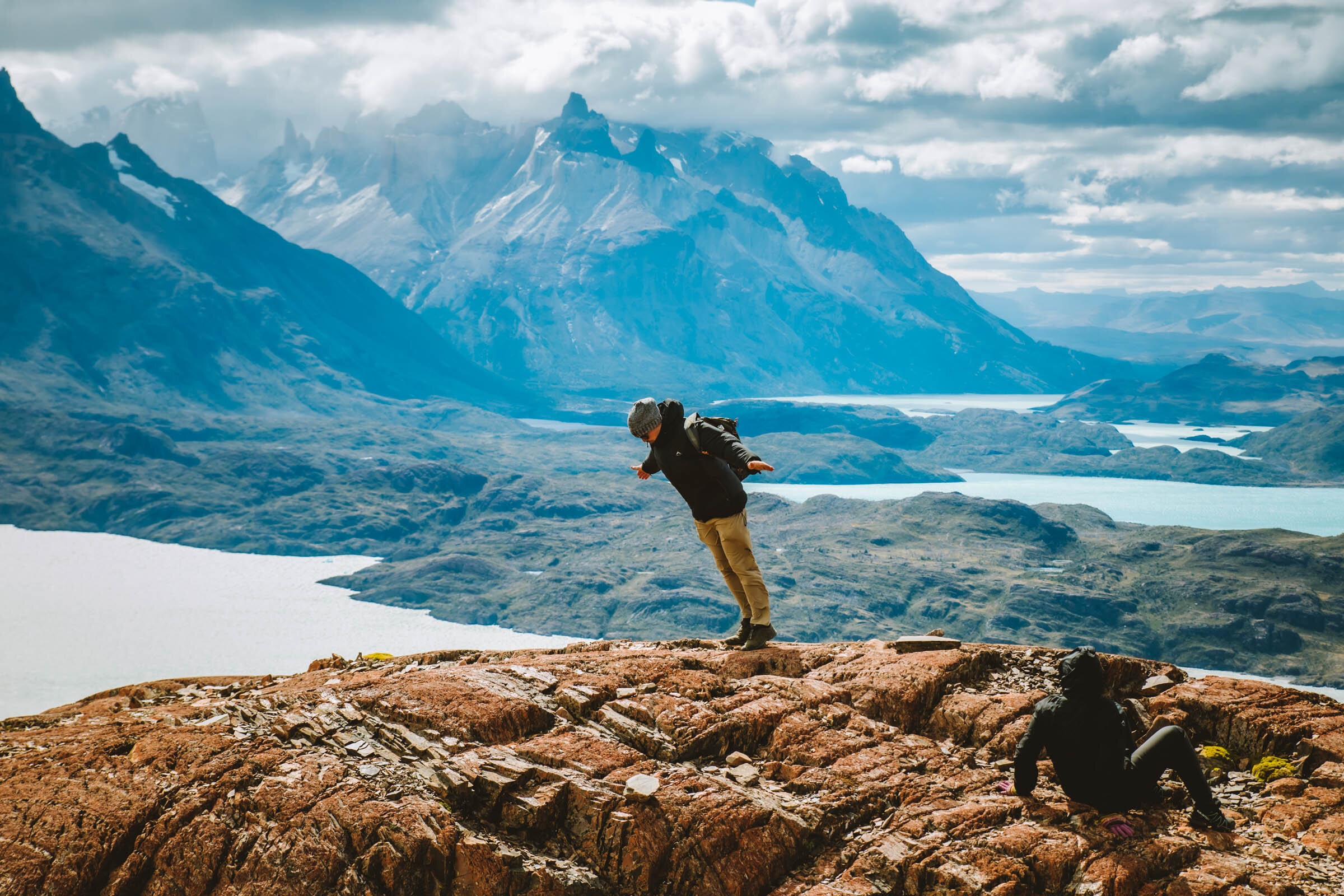
At a latitude of 51 degrees south, Torres del Paine is well out of any normal person’s comfort zone, and the winds can hit 160km/h without breaking a sweat. This felt like a place that humans weren’t designed for and stepping outside was generally unpleasant, in the most appropriate kind of way. The elements did keep the majority of park visitors confined to buses and the few eateries, and even in high season we didn’t have to hike far to have the place to ourselves. The endless views of a world carved by glaciers, and lakes coloured by melting ice, were always worth the effort.
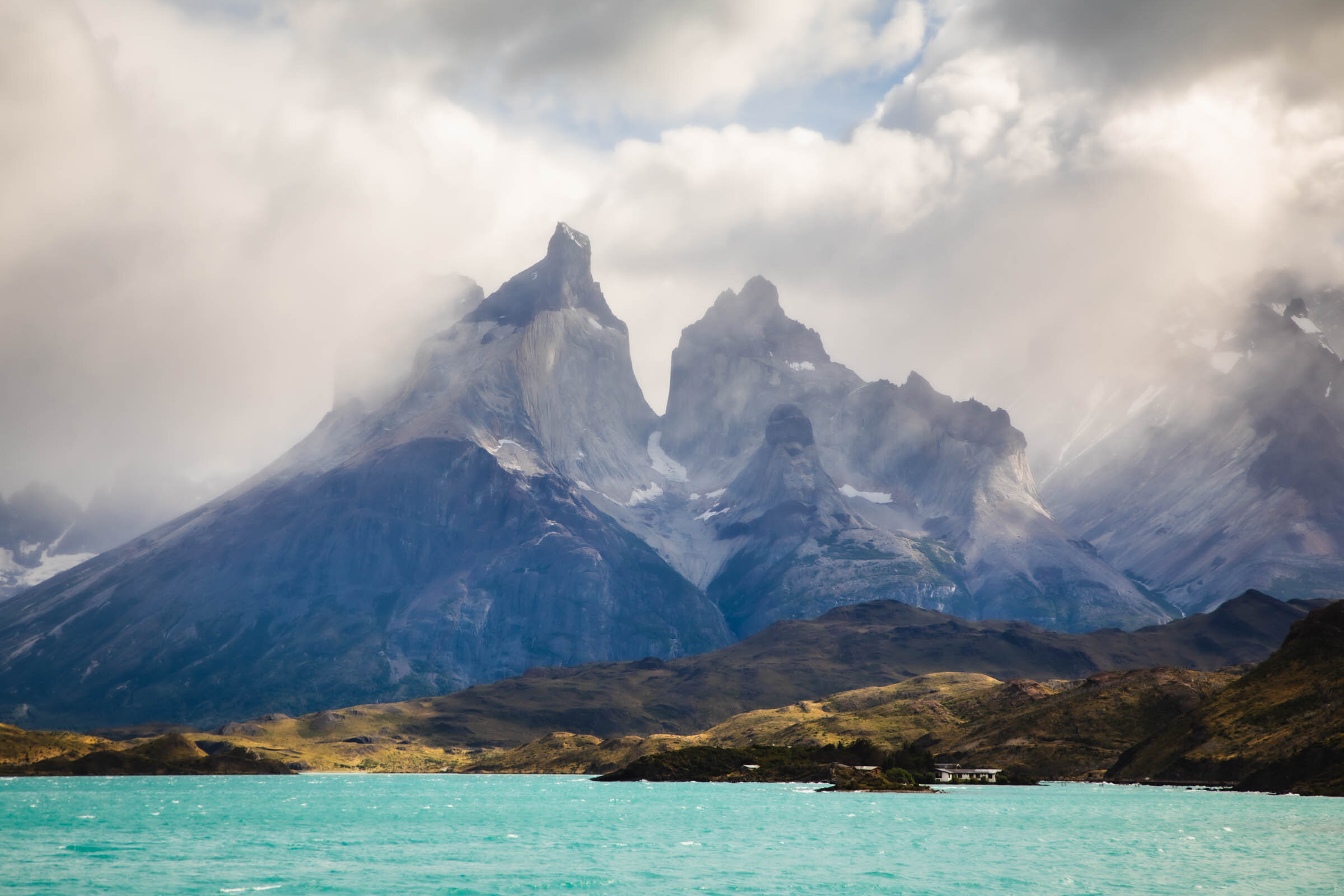
There was not a moment in Torres del Paine that I didn’t feel insignificant. Anything of human origin was small in comparison to its natural surroundings, but if you look carefully in the bottom right of this image you can see the small ‘Hosteria’ where we spent a couple of nights. Throughout this entire adventure I was continually reminded that there is a responsibility attached to a visit to any of the world’s wildest, most spectacular landscapes; a responsibility often ignored by those privileged enough to experience them. A responsibility to be aware, to take in the experience to the fullest of your personal abilities, and to be grateful that these places exist and you are alive to see them.
Follow @jeremy.goss on Instagram to see more of his work, and to book your own Argentinian riding safari, head to www.jakotango.com.
Jeremy was born in South Africa and raised to love the wild spaces of the continent from an early age. As a result, he has spent most of his adult life trying to find ways to combine his love of photography and wilderness with ways of conserving it. He is currently based in Kenya, where he divides his time between conservation work for Big Life Foundation, safari guiding and photography.
